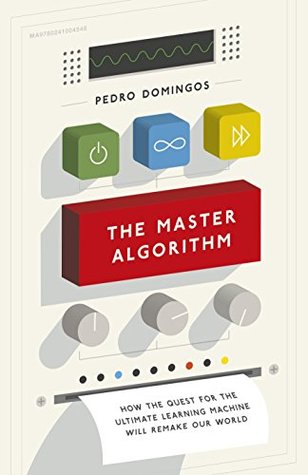More on this book
Community
Kindle Notes & Highlights
Master Algorithm’s impact on technology will not be limited to AI. A universal learner is a phenomenal weapon against the complexity monster. Systems that today are too complex to build will no longer be. Computers will do more with less help from us. They will not repeat the same mistakes over and over again, but learn with practice, like people do. Sometimes, like the butlers of legend, they’ll even guess what we want before we express it. If computers make us smarter, computers running the Master Algorithm will make us feel like geniuses.
Your reaction to the datafication of life should not be to retreat to a log cabin—the woods, too, are full of sensors—but to aggressively seek control of the data that matters to you. It’s good to have recommenders that find what you want and bring it to you; you’d feel lost without them. But they should bring you what you want, not what someone else wants you to have. Control of data and ownership of the models learned from it is what many of the twenty-first century’s battles will be about—between governments, corporations, unions, and individuals.
For symbolists, all intelligence can be reduced to manipulating symbols, in the same way that a mathematician solves equations by replacing expressions by other expressions. Symbolists understand that you can’t learn from scratch: you need some initial knowledge to go with the data. They’ve figured out how to incorporate preexisting knowledge into learning, and how to combine different pieces of knowledge on the fly in order to solve new problems. Their master algorithm is inverse deduction, which figures out what knowledge is missing in order to make a deduction go through, and then makes it
...more
Bayesians are concerned above all with uncertainty. All learned knowledge is uncertain, and learning itself is a form of uncertain inference. The problem then becomes how to deal with noisy, incomplete, and even contradictory information without falling apart. The solution is probabilistic inference, and the master algorithm is Bayes’ theorem and its derivates. Bayes’ theorem tells us how to incorporate new evidence into our beliefs, and probabilistic inference algorithms do that as efficiently as possible.
The human brain is not a blank slate because it’s not a slate. A slate is passive, something you write on, but the brain actively processes the information it receives. Memory is the slate it writes on, and it does start out blank. On the other hand, a computer is a blank slate until you program it; the active process itself has to be written into memory before anything can happen. Our goal is to figure out the simplest program we can write such that it will continue to write itself by reading data, without limit, until it knows everything there is to know.


